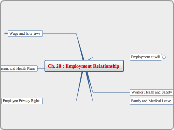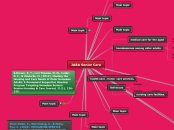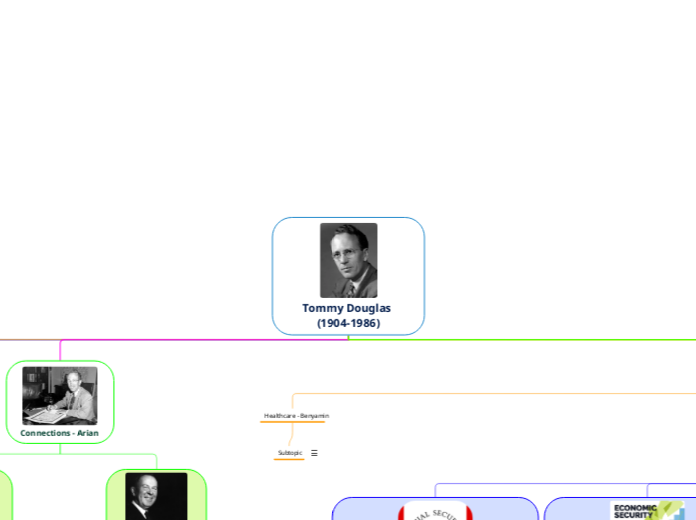Ch. 20 : Employment Relationship
Employee Privacy Rights
Other types
AIDS and HIV
American Disabilities Act
Drug testing
Private
Some norms
Public Employers
Public safety issues
Lie Detector tests
Not allowed
Electronic Monitoring in Workplace
Electorinc Communications Privacy Act
Use in business course
No Privacy issues
Employer Informs
Income Security, Pension, and Health Plans
Employer-Sponsored Group Health Plans
HIPAA
Requirements for Insurance
Reponsabilities
Collect info
Privacy
Employees given credit for previous health coverage
Limit exclusion
Preexisting condition
med treatment within 6 months
COBRA
Procedures
Employee pays premiums for continued coverage and administrative fees
Employer has no further obligation
18 more months of coverage
Employee has 60 days to decide to continue with the plan or not
Employer Notifies of COBRA to the Employee
Employers with 20 or more
Gives employee right to continue the group health benefits for a litmited time
Former SPouses and children
Spouses
Lost job
Not eligible for group health-insurance plans
Unemployment Compensation
Federal unemployment tax act
FUTA
Worker willing to work, actively seeking work
Private Pension Plans
Employee Retirement Income Security Act
ERISA
Retirments plans by employers
Medicare
Financed
Employers and Employees
Some disable under 65
65 years or older
Social Security Act
FICA
Help pay benefits for retirement
Employer and Employee
Provides
Old age survivors and disability insurance
OASDI
Insurance programs to protect from
Unemployment
Hospitalization
Disability
Retirement
Wage and hour laws
Fair Labor Standards Act
Hours and Wage
More than 40 hours
Exemptions
Does not apply to
Police
firefighters
Workers who perform repetitive tasks
Manual workers
hours done - 40
Paid 1.5 times the regular pay
7.25 per hour (2009)
Child Labor
18
None of the above
16
No time limit
14-15
No more than 8 hours in normal day
No more than 3 hours in school day
Not hazardous occupations
Under 14
Work for their parents
Deliver newspapers
Extend wage-hour requirements
Cover all employers involved in interstate commerce
Walsh-Healey Act
Federal Government
1.5 times regular pay
Overtime
Minimum wage
Davis-Bacon Act
Prevailing wages
Government contruction projects
Contractors or subcontractors
Family and Medical Leave
FMLA
Remedies
Promotion
Job Reinstatement
Damages for lost benefits, Denied compensation, monetary losses
Up to employees wage for 12 weeks
Coverage and Application
Employer with 50 or more
New people and part time are not covered
same position or comparable position
Except
Key Employee
Top 10 percent pay
continue health-care coverage
12 weeks of unpaid family or medical leave
Time off Work
Worker Health and Sagety
State workers' compensation Laws
Disadvantages
Cannon sue after accepting workers' compensation
Advantages
No common law defenses of
Assumption of risk
Contributory negligence
Requirements
Employees notify
Agency
workers' compensation claim
60 to 2 years
Employer
Injury promptly
30 days
Employment relationship
Injured
Accidental on the job in the course of employment
Minors
Included
Domestic, agricultural,temporal, common carriers
Excluded
Administrative procedure for compensating workers injured on the job
The occupational Safety and Health Act
Procedures and violations
Report OSHA
48 hrs to do so
Accident
5 or more employees on it
Death
Injury
Employers with 11 or more
Injury and illness records
Enforcement agencies
3
OSHA
Occupational safety and health administration
Make inspections
Promulge standards
Occupational Safety and Health Review comission
Appeal form actions of the OSHA
The National Institute for Occupational Safety and Health
Research health problems
Specific standards
Safe workplaces
Employment at will
Wrongful Discharge
No violation of employment contract or statutory law
Common law
Discharge contract
Exceptions
Public Policy
Refuse to enter criminal acts
Statutes
Tort theory
Defamation
Infliction of emotional distress
Fraud
Promise believed by the employee and not completed by the employer
Contract theory
Implied contract, fire in different terms
Arbitrarism
Good Faith
Oral Premises
Bulletin









